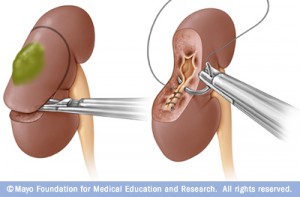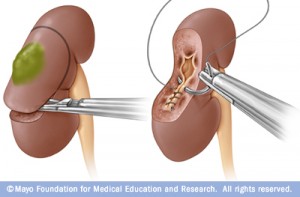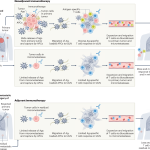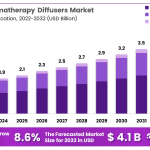
Rethinking Healthcare: The Intersection of Modern Medicine, Alternative Treatments, and Nutrition
In today’s ever-changing world, healthcare stands at a crossroads between modern medicine, alternative treatments, sound nutrition, and holistic approaches to wellness. As an editor of a leading online healthcare journal, I have witnessed firsthand the many twists and turns that define the sectors of conventional and alternative health practices. In this opinion editorial, I want to share my thoughts on these topics, all while paying close attention to the subtle details and the tricky parts of human well-being that many people find intimidating to understand.
Modern medicine has undoubtedly transformed patient care, diagnostics, and treatment plans for diseases once considered untreatable. Yet, the rise of alternative medicine and nutritional science invites us to take a closer look at combining the strengths of different approaches. By merging the scientific foundations of conventional practice with the wisdom of traditional remedies and the proactive measures of nutrition and fitness, individuals can work through a healthcare puzzle that offers both effective treatment and preventive measures.
Integrating Conventional and Alternative Medicine: A Balanced View
The gap between modern medicine and alternative approaches is often filled with challenging questions. Many patients feel overwhelmed when choosing how to address their health issues—should one opt for strictly scientific methods or explore more natural, holistic options? As someone who has been immersed in the healthcare field, I believe it is essential to figure a path that combines the best of both worlds.
Benefits of a Combined Approach
The merits of integrating conventional treatments with alternative practices are increasingly recognized. Here are some of the key benefits:
- Personalized Care: Blending modern diagnostics with alternative techniques such as herbal medicine, acupuncture, or mindfulness practices can lead to a more tailored treatment plan.
- Preventive Health: While modern medicine is excellent at addressing acute conditions, alternative methods, paired with a nutritious diet, emphasize prevention through lifestyle changes.
- Improved Patient Empowerment: When patients are provided multiple avenues for healing, they often feel more in control and involved in their personal care decisions.
- Cost Efficiency: In many cases, nutritional strategies and some alternative treatments can reduce overall healthcare expenditures by preventing chronic conditions or reducing the need for expensive interventions.
This balanced approach acknowledges that each patient is unique. It requires a fine balance between scientific proof and traditional wisdom—a blend that considers both the lab-tested and the experiential aspects of healing.
Challenges in Combining Disciplines
Of course, merging different medical paradigms is not without its twists and turns. There are several complicated pieces that both patients and practitioners need to consider:
- Safety and Efficacy: Modern medicine is governed by rigid standards of clinical trials and regulated research, while alternative treatments may only have anecdotal evidence supporting their benefits. It is critical to ensure that any approach chosen is safe and backed by credible research.
- Regulatory Barriers: The integration of complementary methods sometimes faces regulatory hurdles, leaving practitioners wondering how to best steer through legal and ethical considerations.
- Patient Misinformation: With the abundance of online health information, patients often get lost in a sea of myths, unverified claims, and exaggerated benefits. It is our professional duty to help figure a path through this maze of information.
- Physician Skepticism: Some conventional practitioners may be reluctant to endorse alternative methods, especially if they appear off-putting or are loaded with problems related to proper dosing or quality control.
Addressing these issues demands a clinician’s commitment to both the science and the art of healing—a commitment that goes beyond the confines of a strictly biomedical model.
Modern Medicine and Nutrition: A Dynamic Duo
Nutrition is increasingly recognized as a super important element in preventing and managing disease. It plays a key role in the effectiveness of many treatments, whether they are rooted in modern science or alternative traditions. In many ways, healthy eating habits and bioactive nutrients are critical allies in combating chronic conditions such as diabetes, heart disease, and even certain forms of cancer.
The Role of Diet in Disease Prevention
There exists a deep connection between food choices and health outcomes. Here are several ways nutrition plays into the modern medical landscape:
- Reducing Inflammation: Diets rich in omega-3 fatty acids and antioxidants play an essential role in mitigating inflammation—a common factor in many chronic illnesses.
- Stabilizing Blood Sugar: Balanced meals that avoid high sugar and refined carbohydrate spikes are important for managing conditions like diabetes.
- Boosting Immunity: Nutrient-dense foods, including fruits, vegetables, lean proteins, and whole grains, help the body resist infections and may even influence the outcome of treatments.
- Supporting Mental Health: Emerging research underscores the connection between gut health and mental well-being, making nutrition an integral part in managing conditions like depression and anxiety.
Table 1 below offers a simplified comparison of common dietary components and their potential impact on health:
| Nutrient | Primary Function | Health Benefit |
|---|---|---|
| Omega-3 Fatty Acids | Reduces inflammation | May lower risk of heart disease |
| Antioxidants | Neutralizes free radicals | Supports cell repair and aging |
| Fiber | Regulates digestion | Helps in managing blood sugar levels |
| Vitamins and Minerals | Supports metabolic functions | Boosts immunity and energy production |
This table highlights how each nutrient contributes to overall health. It is a mini-guide to the very subtle parts of nutrition that can influence everything from immune function to mood regulation.
Integrative Nutrition and Medical Treatment
When nutrition is combined with modern medicine, the impact can be profound. Consider the following points:
- Customized Therapeutic Diets: Many modern treatment plans now include personalized nutrition counseling. By integrating dietary plans into medical protocols, practitioners provide a rounded approach to managing conditions like hypertension and high cholesterol.
- Adjunctive Therapies: Nutritional supplements and herbal aids are often used alongside traditional therapies, offering additional layers of support for bodily systems. It is important, however, that such supplements are chosen carefully to ensure safety and evidence-based benefits.
- Holistic Patient Education: Educating patients about how to choose healthy foods and prepare well-balanced meals is a form of self-empowerment that goes hand in hand with taking prescribed medications or undergoing clinical treatments.
Such integrative approaches are being embraced by an increasing number of healthcare professionals who are working through the maze of modern and alternative therapies to find ways that work for each unique individual.
Exploring the Benefits and Limitations of Alternative Medicine
Alternative therapies have long been a part of various cultural healing practices across the globe. From acupuncture to Ayurveda, these methods often carry with them a rich history and an emphasis on the body’s natural ability to heal. While alternative medicine might seem overwhelming for those trained primarily in modern medicine, there is much to gain by poking around in this field and considering its potential contributions to mainstream healthcare.
Strengths of Alternative Treatments
There are several reasons why alternative medicine continues to attract patients seeking a less drug-dependent approach to health:
- Holistic Focus: Many alternative practices consider the whole person—mind, body, and spirit—which can help patients develop a deeper understanding of their overall well-being.
- Natural Remedies: A reliance on natural substances may reduce the risk of side effects that are sometimes associated with synthetic drugs. This natural approach aligns closely with preventive health measures, especially when used in conjunction with nutritional modifications.
- Personal Empowerment: By taking an active role in their health choices, patients often feel they have a stronger connection to their healing journey, which in turn can produce positive emotional and psychological outcomes.
- Historical and Cultural Relevance: Many alternative practices have been refined over centuries and continue to hold value in different cultural contexts. Their traditional wisdom offers fine points that modern research is only beginning to explain.
It is essential to respect the value these practices offer while also recognizing that they should often be used to complement, rather than completely replace, modern clinical methods.
Limitations and Considerations
Despite the appealing aspects of alternative medicine, certain challenges persist:
- Lack of Standardization: Many alternative practices are not standardized like modern treatments. This can leave patients wondering how to find quality practitioners or reliable treatments.
- Scientific Validation: While some alternative therapies are backed by emerging research, many others have not been rigorously tested. This makes it tricky to determine their real efficacy.
- Potential Interactions: When combining alternative supplements or treatments with conventional medications, there is a risk for unforeseen interactions, which requires careful guidance from knowledgeable healthcare professionals.
- Access and Regulation: Not all alternative methods are available or regulated in every region, making it nerve-racking for patients trying to coordinate multiple treatment modalities.
For anyone considering alternative treatments, it is critical to seek guidance from healthcare providers who have experience in both modern and alternative methods. This ensures that the chosen path for recovery is both safe and effective.
The Critical Role of Fitness in Achieving Overall Wellness
Physical fitness is another essential part of the healthcare equation. Exercise not only boosts physical health but also supports mental well-being and aids in the management of chronic diseases. By combining fitness routines with proper nutrition and, when appropriate, both conventional and alternative treatments, individuals can propel themselves towards a more robust state of health.
Integrating Physical Activity with Medical Care
There are many ways in which fitness and conventional medicine interact for an overall positive outcome:
- Enhanced Recovery: Regular physical activity can speed up recovery from illnesses and surgical procedures by improving circulation and reducing inflammation.
- Mood and Stress Management: Exercise is well-known for its ability to release endorphins, thereby reducing stress and improving overall mood, which is critical for patients undergoing strenuous treatments.
- Preventive Health Benefits: Establishing a fitness routine early on is a super important investment for future health. Activities like walking, swimming, or strength training can help stave off conditions such as obesity, diabetes, and heart disease.
- Improved Metabolic Function: Regular workouts boost metabolic rates, aiding in weight management and the overall efficiency of body systems.
Table 2 provides a quick overview of the benefits of incorporating regular exercise into your lifestyle:
| Exercise Type | Key Benefit | Target Benefit |
|---|---|---|
| Aerobic Exercise | Improved cardiovascular health | Boosts heart function and circulation |
| Resistance Training | Increased muscle strength | Supports bone density and metabolism |
| Flexibility Routines | Enhanced mobility | Prevents injuries and eases daily tasks |
| Balance Exercises | Better stability | Helps reduce fall risk, especially among seniors |
This overview emphasizes that there is no one-size-fits-all approach to fitness. Much like in medicine and nutrition, personalizing a workout plan to meet your individual needs and capabilities is key to achieving long-term benefits.
Fitness and the Mind-Body Connection
It is equally important to acknowledge the power of the mind-body connection when discussing fitness and health. Many fitness experts emphasize that physical activity is not merely about muscle and movement; it is also a powerful tool for managing stress, anxiety, and depression.
When individuals engage in regular exercise, they often experience:
- Improved Cognitive Function: Physical activity increases blood flow to the brain, leading to sharper focus and clearer thought processes.
- Better Sleep Quality: Consistent workouts can help regulate sleep patterns, providing a restorative break for the mind and body.
- Emotional Resilience: Exercise provides an outlet for stress relief, enabling individuals to better handle the little twists and turns of everyday challenges.
These benefits illustrate how fitness works hand in hand with other healthcare strategies. In fact, many modern treatment protocols now include recommendations for physical activity as an adjunct to other therapies, making exercise a super important element in any comprehensive treatment plan.
Patient Empowerment and Educated Decision-Making
At the heart of the evolving healthcare landscape is the concept of patient empowerment. With so many treatment options available—ranging from modern medications and surgical procedures to alternative therapies and nutritional interventions—it is on the patient to take an active role in their health decisions.
Building Health Literacy
The modern patient must sort out a vast array of information to determine what is best for them. Increasing health literacy is essential when it comes to making informed decisions. Here are a few strategies that can help:
- Consult Multiple Experts: It’s always a good idea to get opinions from both conventional physicians and professionals specializing in alternative treatments or nutrition. This multi-faceted guidance can help demystify the hidden complexities of modern healthcare.
- Ask Critical Questions: Whether it’s about medication side effects or the potential benefits of a herbal remedy, asking detailed questions can reveal those subtle differences that make a genuine impact on treatment outcomes.
- Utilize Trusted Sources: In the age of the internet, misinformation is rife. Establishing trusted channels—such as peer-reviewed journals, certified healthcare institutions, and licensed practitioners—helps ensure that the information is accurate and up to date.
- Participate in Support Groups: Sharing experiences with others who are navigating similar health challenges can build confidence and provide real-world insights into what works best.
Educated patients are better equipped to mix and match available treatments—from prescription medications to nutritional strategies—ultimately paving the way for personalized and effective care plans.
Strategies to Become an Active Participant in Your Health
Taking the wheel of your own healthcare journey involves more than merely following your doctor’s orders. It requires a proactive mindset and a willingness to engage in your treatment planning. Here are some practical steps to get started:
- Keep a Health Journal: Logging symptoms, dietary habits, exercise routines, and responses to various treatments can provide valuable insight over time.
- Set Clear Health Goals: Whether you’re aiming to lower blood pressure, manage weight, or reduce stress, having clear targets can help guide discussions with your healthcare team.
- Stay Open-Minded: Be prepared to adjust your approach as new information emerges or conditions change. The ability to adapt is crucial in managing both ongoing health issues and preventive care.
- Embrace a Holistic Mindset: Recognize that healing often involves a mix of physical, emotional, and social well-being, each requiring attention over time.
These strategies not only strengthen individual health but also contribute to a broader shift toward a more inclusive and resilient healthcare system—one that appreciates the little details, the subtle parts, and the genuine experiences of patients.
Charting a Course for the Future of Healthcare
Looking ahead, the challenge for healthcare professionals, policymakers, and patients alike is to work through the array of treatment options while staying focused on the end goal: better health outcomes for all. The convergence of modern medicine with complementary therapies and nutritional science offers a promising framework for a more integrative approach to health.
The Evolving Role of Technology in Healthcare
One major area that stands to revolutionize this evolving field is technology. Digital tools, telemedicine, and mobile health applications are playing an increasing role in how care is delivered and monitored. Some ways technology is shaping future healthcare include:
- Remote Consultations: Telemedicine is enabling patients to connect with doctors from the comfort of their homes, making personalized care more accessible and less nerve-racking.
- Health Monitoring Devices: Wearable technologies track vital signs, physical activity, and even sleep patterns, offering real-time feedback and insights that can complement traditional treatment methods.
- Data-Driven Decisions: Advanced analytics and artificial intelligence are being used to analyze patient data, helping clinicians fine-tune personalized treatment plans and potentially predict health issues before they become critical.
- Educational Platforms: Online resources and e-learning modules are empowering patients and healthcare professionals alike, providing the latest research and best practices to help figure a path through complex medical information.
These technological advances are making it easier than ever to combine the many components of health—from medication adherence to nutritional tracking and physical fitness. In doing so, technology is emerging as a critical partner in managing modern healthcare.
Policy Reform and Its Impact on Healthcare Integration
For integrative healthcare to thrive, policy reforms that encourage collaboration between conventional and alternative practitioners are essential. Regulatory bodies must find ways to safely implement new therapies, ensure quality control, and protect patient interests. Some promising policy directions include:
- Standardizing Alternative Treatments: Developing quality benchmarks for alternative practices can help reduce the risk of unproven therapies and increase patient confidence.
- Insurance Coverage Expansion: Expanding coverage to include services like nutritional counseling, acupuncture, and other validated alternative therapies can lower financial barriers for patients.
- Interdisciplinary Research Funding: Boosting research initiatives that examine the combined impact of conventional and complementary treatments will yield the scientific evidence needed for broader acceptance.
- Patient Advocacy Programs: Supporting initiatives that educate individuals about the full spectrum of healthcare options can empower patients to make informed decisions.
By pushing for these changes, we can help create an environment where integrative healthcare is not a niche option but a mainstream approach that benefits everyone.
Concluding Thoughts: Embracing the Journey Toward Better Health
The healthcare landscape is intricate and full of challenges, with each twist and turn revealing both promising advances and complicated pieces that need careful consideration. Yet, it is precisely these challenges that drive innovation and progress. As we figure a path through the rapidly evolving fields of modern medicine, alternative treatments, nutrition, and fitness, it is essential that we continue to keep the patient at the center of all efforts.
Our mission as healthcare advocates is not to force patients into a one-size-fits-all plan but to empower them with choices and educate them on the merits and limitations of each approach. By doing so, we can help individuals feel more in control, less overwhelmed, and better prepared to face the world of healthcare decisions—a world rife with both scientific breakthroughs and traditional wisdom.
In summary, integrating modern medicine with alternative treatments and a robust focus on nutrition and fitness offers an exciting, balanced approach to tackling health challenges. It takes courage to step into a realm that is on edge with problems, and even more so to blend the tried-and-true with the innovative. Yet, it is through this collaboration that the future of healthcare can be bright, accessible, and, most importantly, truly patient-centered.
As we continue to dig into the science and stories behind every treatment option, let us embrace both the clear evidence and the little twists that every individual’s health journey presents. By combining our collective knowledge, personal experiences, and the latest technological advances, we can all work toward a future where every patient feels supported and empowered to take control of their well-being.
The conversation about healthcare is far from over. It is an ongoing discussion—a dynamic interplay between modern breakthroughs and the time-honored practices of alternative medicine, all enriched by the essential role of nutrition and fitness. Together, they form a complete picture wherein every decision, every treatment, and every lifestyle choice is imbued with the promise of a healthier tomorrow.
Let us continue to take a closer look, ask the right questions, and most importantly, strive for a system that respects both the scientific facts and the human experience. In the end, it is our ability to figure a path through these tangled issues that will determine not only the success of our treatments but also the wellbeing of generations to come.
As we move ahead, let us remember that every step in healthcare is a collaborative journey—a journey that honors the creative fusion of modern and traditional wisdom, underpinned by proactive nutrition and a commitment to lifelong fitness. With continued dialogue, persistent research, and unwavering patient advocacy, the future of healthcare is one that promises inclusiveness, efficacy, and the heartfelt empowerment of every individual.
May this editorial serve as a call to action for everyone involved in the healthcare ecosystem to remain curious, empathetic, and adaptive in the face of change. Together, we can transform the challenges of today into the robust opportunities of tomorrow, ensuring that every twist and turn on the path to wellness leads to a destination we can all celebrate—a healthier, happier, and more resilient society.
Read more about this topic at
KB article content is missing on the Service Portal …
Cause of missing articles and best steps to remedy : r/usenet


